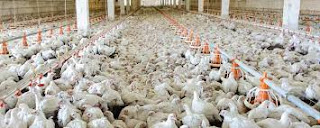Ethical Dilemma #7 - Who knew the term "cookies" meant more than just the delicious things you bake?
Before 1994, companies depending solely on marketing strategies to encourage more traffic in their stores. They invested money into television and magazine advertisements, rented highway billboards, and heavily relied upon the word of mouth. In 1994, however, Lou Montulli, a Netscape employee, developed tracking software called cookies. Here is a brief breakdown of how cookies work, according to Privacy.Net You pick up a tracking cookie on your favorite blog or shopping site. That cookie contains a unique ID that doesn’t identify you personally, but does identify your web browser. The owner of the shopping site signs up and pays for an advertising platform like Google. Google’s ads aren’t static; when you visit other websites that use Google ads to make money, the website sees the cookie and sends it to Google through the ad. Google sees the unique ID stored in the cookie and recognizes that it came from your favorite shopping site. Google then show...


